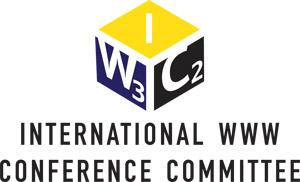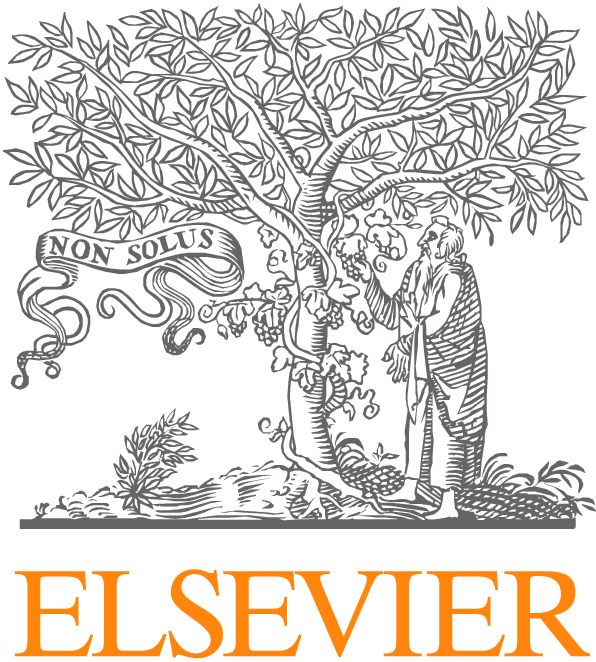The Content Analysis track welcomes submissions of original, high-quality papers related to the extraction of information from, and the analysis of, Web content that is wholly or partially expressed in natural language. The resulting information is broadly construed to include factual, subjective, scientific, social, behavioral, personal, historical, economic, and financial knowledge in natural language. The result of analysis includes any abstract, aggregate, or summarized knowledge such as clusters, topics, classifications, predictions, recommendations, and trends that are useful in the real world. We especially encourage submissions that propose novel, principled and scalable techniques or algorithms that can exploit the special characteristics of the Web and social media for the extraction and analysis of Web content. In addition to new techniques and algorithms, we also seek submissions that explore insight gained in the process.
Topics of interest include but are not limited to the following (listed in no particular order):
- language analysis techniques
- normalization, clustering, classification, and summarization of Web text
- multi-lingual and cross-lingual analysis and mining
- information extraction and text mining
- information visualization as applied to Web data
- event extraction and monitoring
- topic discovery
- sentiment analysis and opinion mining
- social science research based on social media
- detecting deception, fakes and disinformation
- insights from natural language analysis of social media
- content-based information diffusion
- bridging unstructured and structured data
- statistical and machine learning for text
- novel applications
For questions related to this call, please email: content-analysis@www2016.ca
Area Chairs
- Rada Mihalcea, University of Michigan, Michigan
- Vivi Nastase, Fondazione Bruno Kessler (FBK), Trento, Italy
Program Committee
- Tim Althoff, Stanford University
- Ciro Baron, University of Leipzig
- Steven Bethard, University of Alabama at Birmingham
- Chris Biemann, TU Darmstadt, Germany
- Yunbo Cao, Microsoft Research Asia
- Cornelia Caragea, University of North Texas
- Taylor Cassidy, BM Research & Army Research Laboratory
- Diego Ceccarelli, Bloomberg LP
- Wanxiang Che, Harbin Institute of Technology
- Hsin-Hsi Chen, National Taiwan University
- Zhiyuan Chen, University of Illinois at Chicago
- Konstantina Christakopoulou, Dept. of Computer Science and Engineering, University of Minnesota, Twin Cities
- Gianluca Demartini, University of Sheffield
- Eduard Dragut, Temple University
- Radu Florian, IBM TJ Watson Research Center
- Sujatha Das Gollapalli, I2R, A*STAR
- Ben Hachey, University of Sydney
- Sanda Harabagiu, Human Language Technology Research Institute, University of Texas at Dallas
- Dirk Hovy, University of Copenhagen
- Hongzhao Huang, Rensselaer Polytechnic Institute
- Minlie Huang, Tsinghua University
- Seung-Won Hwang, POSTECH
- Diana Inkpen, University of Ottawa
- Jing Jiang, Singapore Management University
- Farshad Kooti, USC Information Sciences Institute
- John Kummerfeld, UC Berkeley
- Finley Lacatusu, Language Computer Corporation
- Wai Lam, The Chinese University of Hong Kong
- Ben Leong, Educational Testing Service
- Fangtao Li, Google Research
- Hang Li, Huawei Technologies
- Hao Li, Rensselaer Polytechnic Institute
- Juanzi Li, Department of Computer Science, Tsinghua University
- Sujian Li, Peking University
- Ee-Peng Lim, Singapore Management University
- Chin-Yew Lin, Microsoft Research Asia
- Kang Liu, National Laboratory of Pattern Recognition,Institute of Automation, Chinese Academy of Sciences
- Lei Liu, HP
- Wei Liu, IBM Thomas J. Watson Research Center
- Yang Liu, University of Texas at Dallas
- Zhiyuan Liu, Tsinghua University
- Annie Louis, University of Edinburgh
- Amin Mantrach, Yahoo!
- Andrea Maurino, Univ. Milano-Bicocca
- David McClosky, IBM Research
- Andrea Moro, Sapienza, Università di Roma
- Alessandro Moschitti, QCRI and University of Trento
- Smaranda Muresan, Columbia University
- Vincent Ng, University of Texas at Dallas
- Constantin Orasan, University of Wolverhampton
- Sinno Jialin Pan, Nanyang Technological University, Singapore
- Francesco Piccinno, University of Pisa
- Yuval Pinter, Yahoo Research Labs
- Emily Pitler, Google Research
- Simone Paolo Ponzetto, University of Mannheim
- Tieyun Qian, Wuhan University
- Delip Rao, Johns Hopkins University
- Alan Ritter, The Ohio State University
- Hinrich Schuetze, University of Stuttgart
- Satoshi Sekine, New York University
- Shuming Shi, Microsoft Research Asia
- Kyuseok Shim, Seoul National University
- Thamar Solorio, University of Houston
- Carlo Strapparava, FBK-irst
- Heiner Stuckenschmidt, University of Mannheim
- Partha Talukdar, Indian Institute of Science
- Yoshimasa Tsuruoka, Graduate School of Engineering, The University of Tokyo
- Svitlana Volkova, Johns Hopkins University
- V.G.Vinod Vydiswaran, University of Michigan
- Joerg Waitelonis, Hasso-Plattner-Institute Potsdam
- Xiaojun Wan, Peking University
- Chi Wang, Microsoft Research
- Houfeng Wang, School of Electronic Engineering & Computer Science, Peking University Beijing
- Michael Wiegand, Spoken Language Systems, Saarland University
- Steven Wilson, University of Michigan
- Hao Wu, University of Southern California
- Wei Xu, University of Pennsylvania
- Dongyan Zhao, Peking University
- Xin Zhao, PKU&SMU
- Chengqing Zong, CASIA

